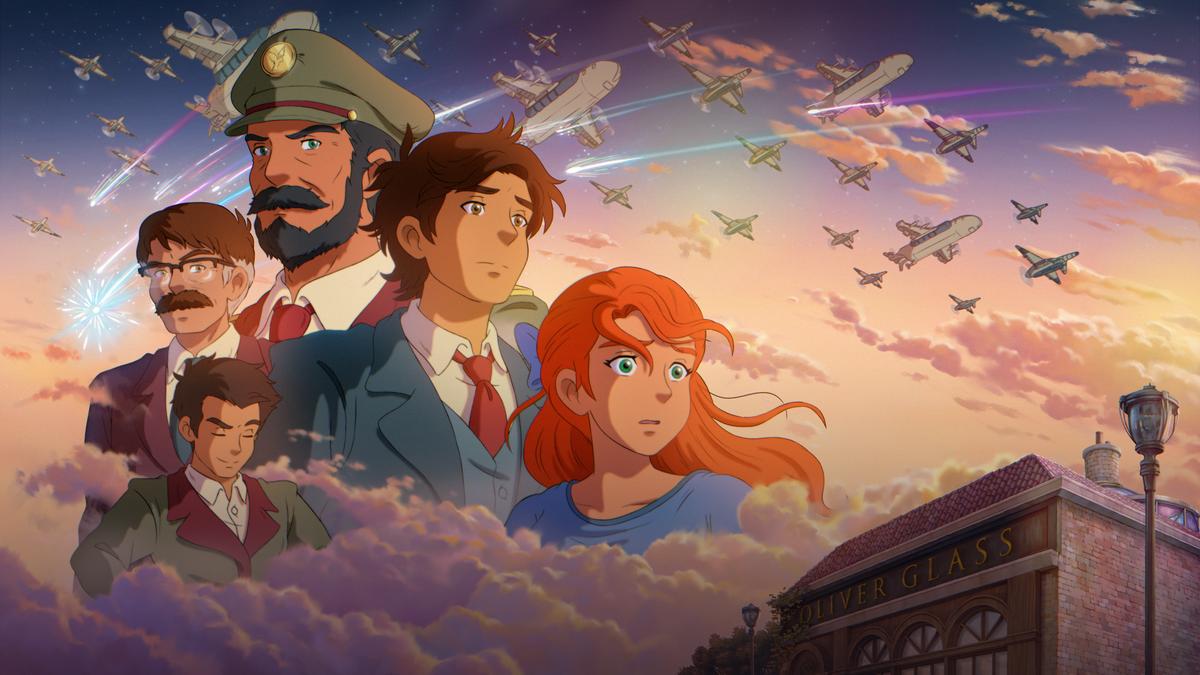
Usman Riaz’s animated film The Glassworker has been submitted as Pakistan’s official entry to the 2025 Oscars, marking a significant milestone in the country’s burgeoning film industry. The film, crafted in the evocative style of Japanese hand-drawn animes, explores the complex narrative of an unexpected friendship set against the tumultuous backdrop of war.
Set in a richly imagined, fantastical world, The Glassworker delves into the lives of Vincent, a young and talented glassblower, and Alliz, a gifted violinist. As their bond intensifies, they are compelled to navigate the challenges posed by the disparate worlds they originate from—Vincent’s artisanal world of glassblowing and Alliz’s intricate world of music. Their friendship is not merely a testament to their personal growth but also an exploration of the broader societal conflicts that define their existence. The film’s nuanced portrayal of these characters and their surroundings invites viewers into a visually and emotionally engaging experience.
The Glassworker marks Riaz’s debut feature film and has already garnered critical acclaim. Its world premiere took place at the prestigious Annecy International Animation Film Festival earlier this year, a platform known for celebrating the finest in animated filmmaking globally. Following its premiere, the film had a successful theatrical run in Pakistan in July, attracting a diverse audience and sparking conversations about the potential of hand-drawn animation within the Pakistani film industry.
One of the distinguishing factors of The Glassworker is its distinction as Pakistan’s first hand-drawn animated feature film. This notable achievement reflects the innovative spirit of Pakistani cinema and signifies a new direction for the industry, which has traditionally leaned towards live-action films. The painstaking effort involved in creating hand-drawn animation is evident in the film’s exquisite attention to detail, vividly bringing to life the characters and the world they inhabit.
In an in-depth interview with The Hindu, Riaz discussed the various inspirations and influences that shaped The Glassworker.
. “I love Studio Ghibli, Hayao Miyazaki, Mamoru Hosoda, Satoshi Kon, and Makoto Shinkai,” he revealed, paying homage to the legendary figures in Japanese animation who have profoundly impacted his artistic vision. The influence of these renowned filmmakers is discernible in the beautifully crafted animation style and the richly layered storytelling of The Glassworker.
While Pakistan celebrates its submission, the competition for the Best International Feature Film at the Academy Awards remains fierce. India has also thrown its hat into the ring with Kiran Rao’s satirical feminist comedy Laapataa Ladies. Like The Glassworker, Laapataa Ladies offers a unique narrative voice and represents a significant cultural expression, adding to the diversity of films vying for the prestigious accolade.
The anticipation now builds as the final shortlist for the Best International Feature Film category will be announced by Academy voters in December. The process of selection is rigorous, with films being evaluated on various parameters including storytelling, technical proficiency, and emotional impact. A spot on the shortlist would not only be a significant recognition for The Glassworker but also a momentous achievement for Pakistani cinema on an international stage.
As the film industry awaits the December announcement, The Glassworker continues to captivate audiences and critics alike with its heartfelt narrative and stunning visuals. Its journey from a visionary concept to an internationally recognized film underscores the immense potential and talent within the Pakistani animation sector. In the broader context, the success of The Glassworker symbolizes a growing acceptance and appreciation of diverse storytelling methods and highlights the universality of animated films in conveying profound narratives.
Usman Riaz’s The Glassworker stands as a beacon of artistic innovation and cultural expression, exemplifying the transformative power of animation in cinema. Its submission as Pakistan’s official entry to the 2025 Oscars not only elevates the film but also places Pakistani animation on a promising trajectory towards global recognition.












